Rwanda Fed False Intelligence to U.S. and Interpol As It Pursued Political Dissidents Abroad

by Carlos Mureithi (OCCRP) and Kira Zalan (OCCRP)
Rwandan dissidents have claimed that President Paul Kagame has used dirty tactics to go after his critics abroad. Now, a classified FBI report obtained by OCCRP confirms that Rwanda has been conducting “poison pen” operations on American soil for years.
Key Findings
- Rwandan intelligence fed false information to U.S. agencies about Rwandan-born U.S. residents who were considered enemies of the country’s President Paul Kagame, with the aim of having them deported.
- The FBI investigated Rwandan claims that people affiliated with the U.S. chapter of the opposition Rwanda National Congress had supported anti-Rwanda militants in Central Africa, but found the allegations to be baseless.
- An internal Interpol document shows that the international police body revoked an arrest warrant for Eugene Gasana, a former Kagame loyalist now critical of the Rwandan regime, after it found Rwanda’s claims against him to be politically motivated.
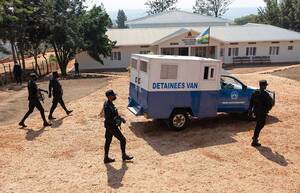
When Paul Rusesabagina left his Texas home in August 2020, he believed he was traveling to the East African nation of Burundi for a speaking tour. But on a layover in Dubai, the famed human rights activist was diverted onto a private plane, flown to his native Rwanda, and detained on dubious terrorism charges.
Credit: Reuters/Alamy Stock PhotoRwandan police guard the van carrying Paul Rusesabagina as it arrives at a court in Kigali, Rwanda, on September 14, 2020.
In an interview with the Guardian, Rwandan President Paul Kagame described the operationthat lured his 68-year-old critic out of the U.S. as “flawless.”
The elaborate kidnapping plot that entrapped Rusesabagina sparked international outrage; the world knew him as the subject of the Hollywood film “Hotel Rwanda,” which feted him for saving the lives of more than 1,000 people who sought refuge in the hotel he managed during the country’s 1994 genocide. But it was only the latest in a decades-long crusade of harassment, threats, assassination attempts, and smear campaigns orchestrated by the Rwandan regime, according to a lawsuit filed by the Rusesabagina family in a Washington, D.C., court.
For years, Rwandan dissidents have claimed that Kagame has used unscrupulous tactics to go after his foreign-based critics — including filing false charges and abusing the Interpol red notice arrest warrant system, a policy that Freedom House calls “transnational repression.” Prominent dissidents have even been assassinated in South Africa, Uganda, Kenya, and Mozambique.
Now, a classified FBI report obtained by OCCRP confirms that U.S. law enforcement has long known of Rwandan intelligence operations against civilians on its soil, including the targeting of Rusesabagina, a U.S. permanent resident, as early as 2011. The report also reveals the U.S. government knew as early as 2015 that agents of the Rwandan government had repeatedly attempted to mislead and co-opt U.S. law enforcement to target Kagame’s critics.
Despite this, the U.S. government is Rwanda’s largest bilateral donor, with $147 million handed over to Kigali in fiscal year 2021.
“Poison Pen Information”
Read more about the Rwandan government’s efforts to target its opponents.Read more
Written in the build-up to Kagame’s re-election to a third seven-year term, the 2015 FBI report warned top American diplomats that Rwanda was using its intelligence services to spread disinformation in the U.S. about Rwandan asylum seekers and opposition members. Its tactics included “providing poison pen [intentionally false or misleading] information to U.S. law enforcement agencies concerning alleged criminal violations through the use of double agents, as well as attempting to manipulate U.S. government immigration law and the Interpol Red Notice System,” the FBI concluded.
One recipient of the FBI’s report was Linda Thomas-Greenfield, the current U.S. ambassador to the United Nations, who was an assistant secretary at the State Department’s Bureau of African Affairs at the time. Her office did not respond to questions sent by email.
“Virtually any country that has an oppressive enough government to create dissidents who would flee to the West are going to engage in operations against those dissidents,” retired FBI agent and counterintelligence expert Todd K. Hulsey told OCCRP, citing Russia, China, and Cuba as examples.
But “it is not normal for a partner nation, and certainly not an ally, to run a poison pen operation on American soil,” he said.
The FBI report said that a number of dissidents were targeted, including Rusesabagina.
In 2011, nine years before he was kidnapped, the Rwandan government made a formal request to U.S. authorities to investigate Rusesabagina for his alleged support of militants in Central Africa.
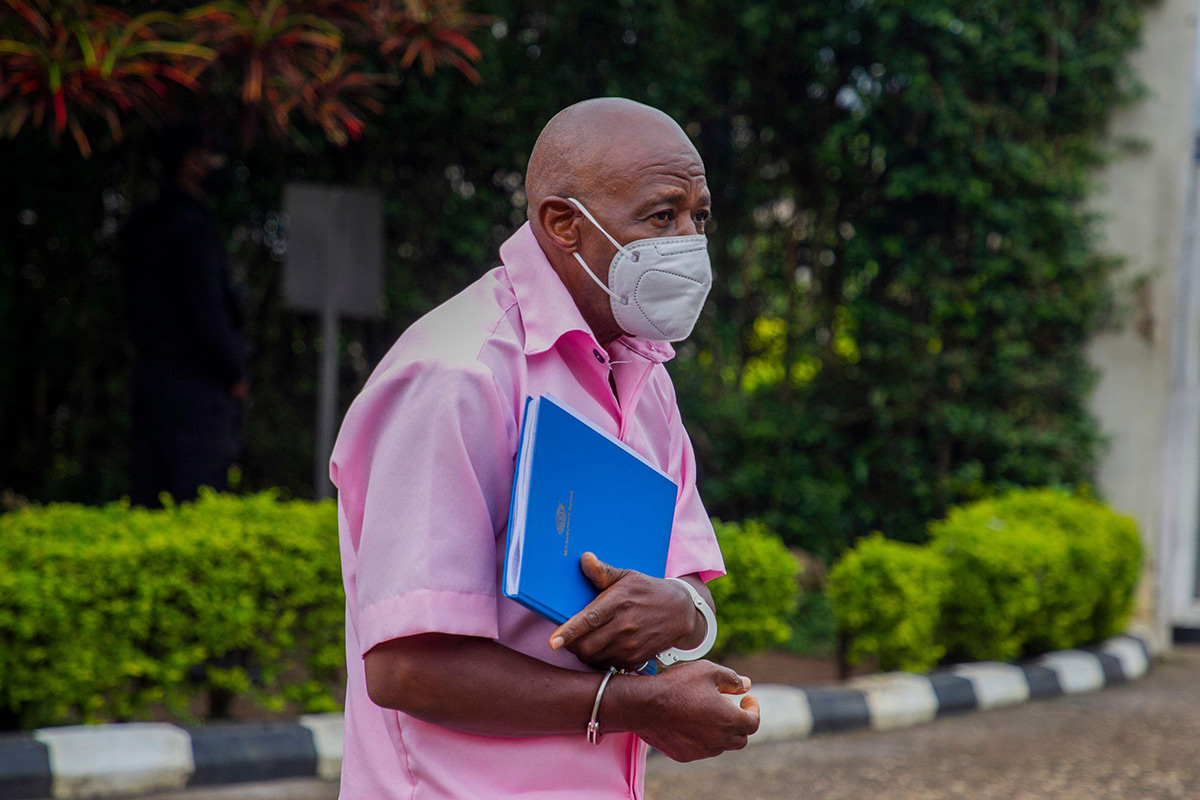
Credit: Xinhua/Alamy Stock Photo A handcuffed Rusesabagina arrives at a court in Kigali, Rwanda, on February 17, 2021.
This was a common allegation against the regime’s detractors. Between 2012 and 2014 the FBI investigated people affiliated with the U.S.-based Rwanda National Congress (RNC), an anti-Kagame opposition group, after the Rwandan government alleged that it was supporting Central African terrorists but found no evidence of criminal activity.
However, the FBI report said its investigations were “consistently hindered” by Rwandan intelligence services “operating double-agents in the United States who were providing mis-information to investigating agents.”
Rwandan intelligence services sought to use an intermediary to plant “derogatory information” that would discredit RNC members, with the goal of getting them deported, the FBI report said. The intermediary confessed to working on some 40 individual cases. The person also provided false information alleging that RNC officials were plotting to kill Kagame in 2011 while he was on a visit to the U.S..
The FBI and U.S. State Department declined to comment. A Rwandan government spokesperson did not respond to questions.
“Open to Abuse”
The Rwandan government also manipulated Interpol — an international policing body based in France — and its red notice system to get foreign law enforcement agencies to go after its targets.
Léopold Munyakazi, a former trade union official in Rwanda, moved to the U.S. in 2004 and later taught French at a private liberal arts college in Maryland while waiting for political asylum.
The Rwandan government asked Interpol to issue red notices for him in 2006 and 2008 after he criticized the government, and U.S.-based Rwandan diplomats and intelligence officials monitored Munyakazi’s activities between 2011 and 2013, according to the FBI report. But Rwanda’s allegations against Munyakazi were inconsistent, first claiming that the dissident was a member of the RNC, then saying he was wanted on charges related to the genocide.
U.S. immigration authorities investigated Munyakazi and deported him in 2016 for suspected human rights violations, despite the fact that the 2015 FBI report said the investigation was “almost certainly” compromised by a Rwandan intelligence agent, and cast doubt on the allegations. In Rwanda, he faced trial on genocide charges and was sentenced to life in prison — only to be cleared of atrocities a year later and re-sentenced to nine years for “downplaying the genocide,” according to multiple media reports.
U.S. Immigration and Customs Enforcement did not respond to questions.
Even senior officials can be targeted: Eugène Richard Gasana was Rwanda’s permanent representative to the United Nations until he disagreed with changes Kagame made to Rwanda’s constitution in 2015 that cleared his way for a third term in power. Gasana knew he couldn’t return to his homeland and settled in New York, his lawyer told OCCRP.
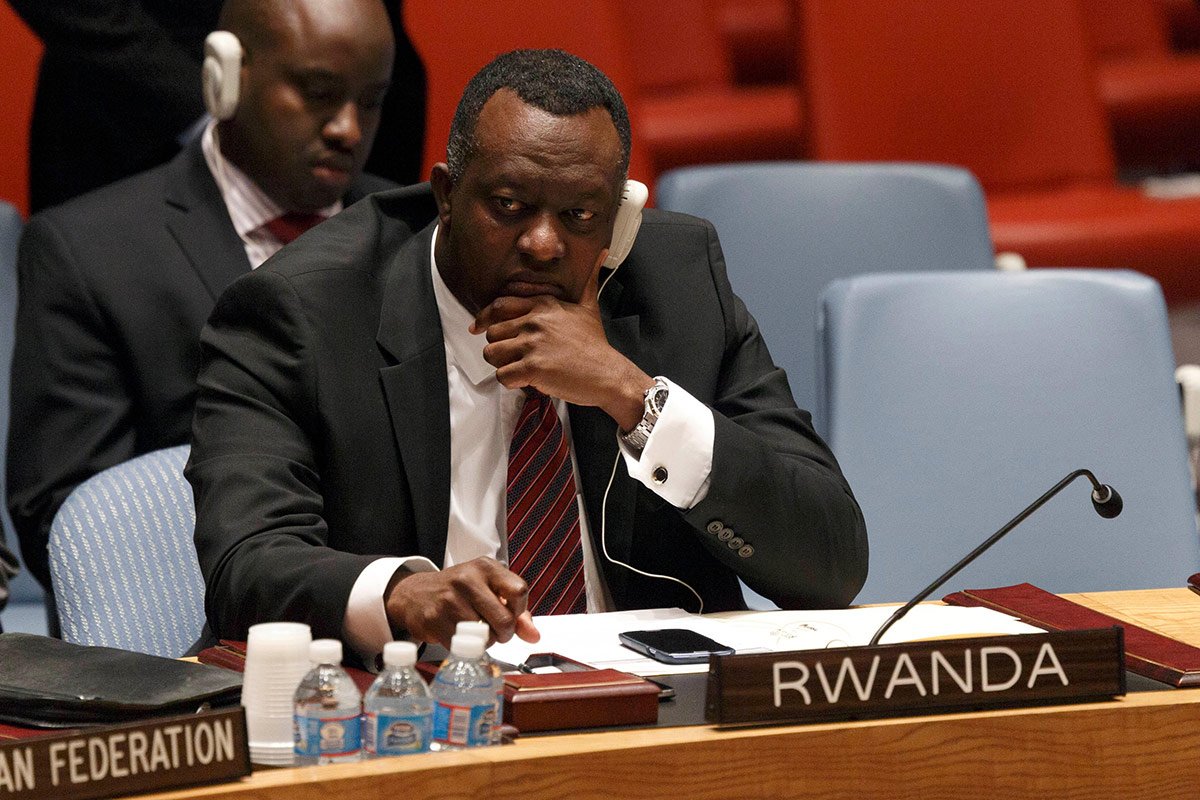
Credit: Trevor Collens/Alamy Stock Photo Eugène Richard Gasana during a UN Security Council meeting at UN Headquarters in New York, 2013.
Soon he was being accused of supporting rebel groups. His lawyer told a New York court that the U.S. investigated these allegations and did not find them credible, while an internal Interpol document about Gasana’s case indicated the policing body found the charges to be politically motivated.
Then, he was accused of rape by a Rwandan woman who had interned in his office at the U.N. several years earlier. New York law enforcement investigated the criminal complaint but did not find a basis on which to bring criminal charges, according to a subsequent Interpol investigation. The accuser is now suing Gasana in New York over the same allegations.
In 2020, Interpol issued a red notice when the Rwandan government recycled the same charges. Gasana challenged the notice, arguing that the charges were political. The internal Interpol review obtained by OCCRP also concluded that there was “a predominant political dimension” to Rwanda’s case against Gasana, and that Interpol “may be perceived as facilitating politically motivated activities.”
“They manipulated Interpol. They snuck the arrest warrant into the system but we were able to get it deleted,” Gasana’s lawyer, Charles Kambanda, told OCCRP. He’s now representing Gasana in the civil litigation in New York, and speculates that after the Rwandan government failed in its efforts to go after Gasana through law enforcement, its intention now “is probably to bankrupt him.”
“Litigation in New York is damn expensive. We’ve been on the civil case for three years now. They always find some reason to delay the case since they know they don’t have a substantive case against him, so they use procedural tricks to keep the case going,” said Kambanda. “They’ve hired a lot of lawyers — I’m fighting five law firms I think. One of them, a lawyer, is representing Kagame in the case against Rusesabagina’s family.”
Will Hayes, a lawyer at U.K. law firm Kingsley Napley who represents clients fighting extradition requests and challenging Interpol red notices, told OCCRP the current system is “open to abuse.”
“The effects of red notices are so onerous and significant compared to the ease with which they can be issued,” said Hayes. “This highlights the disparity between the power of the authorities that request them and the subject who then has to deal with the consequences.”
The minimum requirements for issuing a red notice are very low, according to Hayes. Although in theory the requesting country should be able to provide information demonstrating the accused’s participation in an offense, in reality, “as long as there is a valid arrest warrant and the person is sufficiently identified, it’ll go through,” he said.
Often people learn there is a red notice against them only when they attempt to travel, or when extradition proceedings against them begin, Hayes said. To challenge it, they must petition an Interpol commission, which meets four times a year and can take nine months to issue decisions.
In 2016, Enoch Ruhigira, a Rwandan living in New Zealand who was traveling to the U.K., was detained in Germany on the basis of a red notice, even though it had already been deleted at the time. Ruhigira, the head of presidential staff under the previous Rwandan President Juvénal Habyarimana, had been accused by Kagame of genocide in 2004, but presented convincing evidence to the contrary and got the red notice against him rescinded in 2015. Still, he spent eight months in custody while the confusion was sorted out.
Interpol declined to comment.
“You Can Run But You Cannot Hide”
Kagame’s Rwandan Patriotic Front took power in the aftermath of the 1994 genocide, which saw nearly 1 million members of the Tutsi ethnic group and their sympathizers murdered. Lauded for bringing peace and fast economic growth, his government has been embraced by Western allies for nearly three decades. But at the same time, it has targeted, criminalized and crushed his detractors at home and abroad. Human rights organizations have documented numerous killings, disappearances, threats, attacks and forced returns under Kagame’s rule.
Credit: Xinhua/Alamy Stock PhotoKagame greets his supporters at a presidential campaign rally in Ruhango, Rwanda, on July 14, 2017.
The RNC, an opposition group established in the U.S. in 2010 by exiled former senior government officials, has drawn particular ire. RNC co-founder Patrick Karegeya, a former head of Rwandan intelligence, was murdered in a hotel room in South Africa in 2014. Co-founder Faustine Kayumba Nyamwasa, an ex-Rwandan army chief, has survived three assassination attempts.
“I am a high-profile target, but I’m safer than someone in Kigali [Rwanda’s capital] with similar thinking like me, Nyamwasa told OCCRP. “They are more exposed to a lot of danger.”
“We have our own way of getting to know what is intended,” Nyamwasa said, explaining how he has managed to stay alive. “But you cannot control everything. The situation is threatening but you get used to it. You learn to live with it.”
The Rwandan regime gets away with abductions, disappearances, and assassinations at home and in other African countries, where perpetrators can avoid justice by paying bribes, Nyamwasa explained. In Europe and in the U.S., where there are stronger institutions and rule of law, Rwanda uses disinformation instead.
The disinformation and intelligence operations are run out of Rwanda’s embassies all over the world, according to former high-ranking security officials now living in exile.
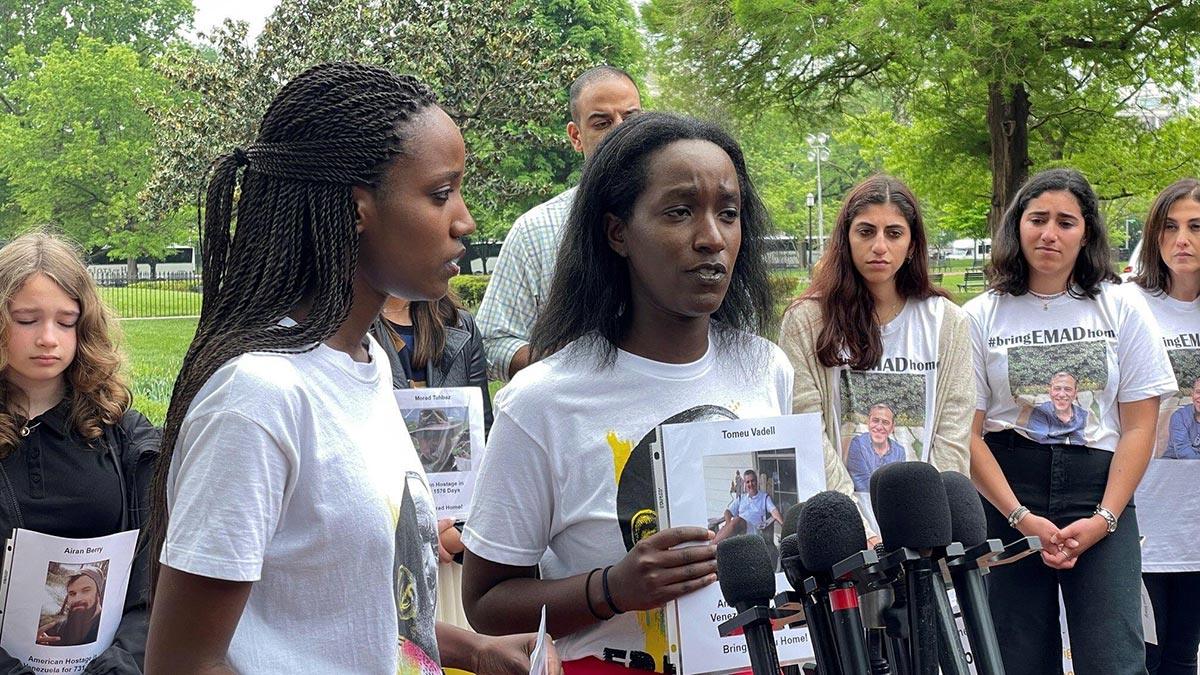
Credit: REUTERS/Alamy Stock Photo Rusesabagina’s daughters speak while gathering with families of other detainees outside the White House in Washington, D.C., U.S. May 4, 2022.
Robert Higiro, a former major in the Rwandan army, says sometimes the operations are carried out by people posing as refugees who are actually working for the government. They “push aggressively” by telling the U.S. State Department, FBI, CIA or the U.K.’s Foreign Office that certain targets are criminals and shouldn’t get asylum, according to Higiro.
Several exiles told OCCRP about warnings and briefings they had received by police in the U.S., U.K., Belgium, and the Netherlands, suggesting that despite warm diplomatic relations, these governments are aware of Kigali’s tactics.
British journalist Michela Wrong, author of “Do Not Disturb,” a book about the Kagame regime and the killing of Karegeya, told OCCRP that Rwanda’s extradition efforts are designed to dissuade any political challengers to Kagame. Foreign law enforcement agencies don’t always realize what they’re dealing with, she said.
“The message is, ‘You can run, but you cannot hide. I will get you in the end.’ That’s what all these operations boil down to,” Wrong said. “This is a personalized message directed at Kagame’s own entourage, which he believes would be the source of any serious challenge to his regime.”
Reconsidering U.S. Support?
Despite Rwanda’s poor track record on human rights, Western allies have maintained their support for decades.
In addition to training the Rwandan military, the U.S. proposed to spend $145 million in assistance to Kigali in 2023. The U.K. signed a bilateral agreement to send asylum seekers from the U.K. to Rwanda, despite being warned that Rwanda tortures and kills political opponents.
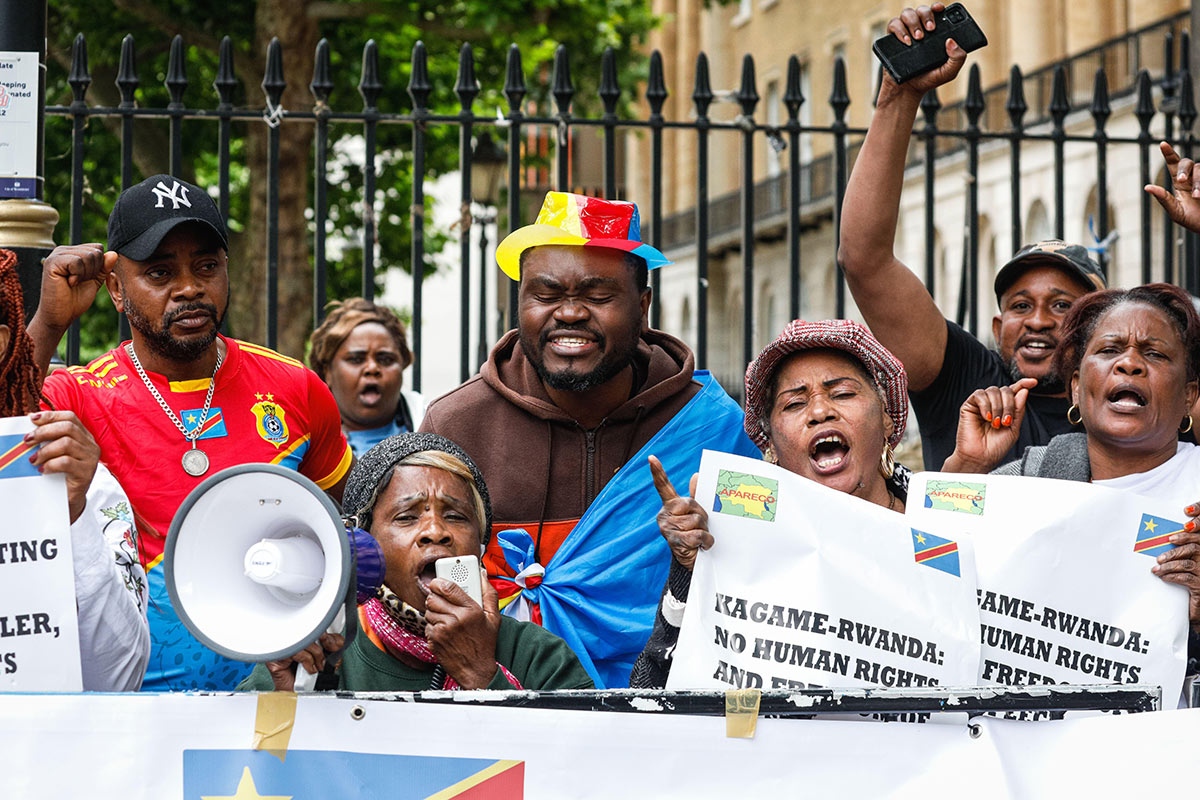
Credit: Imageplotter/Alamy Live News Protesters in London rally against the U.K.’s plans to deport refugees and migrants to Rwanda.
One U.S. lawmaker is pressuring the Biden administration to finally reconsider supporting Kigali, especially after Rusesabagina’s kidnapping in 2020.
“Not only would Rwanda be flouting U.S. laws by targeting dissidents inside the United States, Rwanda appears to be the only foreign government in the world that is both wrongfully detaining an American resident and seen by the United States as a partner and ally,” wrote Senator Robert Menendez, the chairman of the Committee on Foreign Relations, to Secretary of State Antony Blinken in July.
The lawmaker said there was a “need for a more effective U.S. policy” and that he would place a hold on all security assistance to Rwanda until the State Department undertakes a comprehensive review.

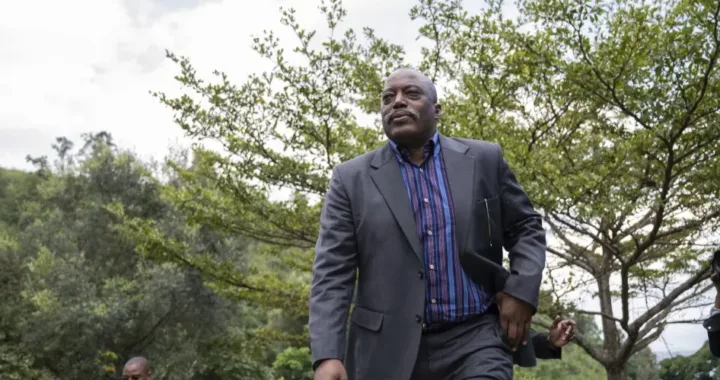 Badinter, Kabila, Tshisekedi : la justice n’est pas la vengeance
Badinter, Kabila, Tshisekedi : la justice n’est pas la vengeance 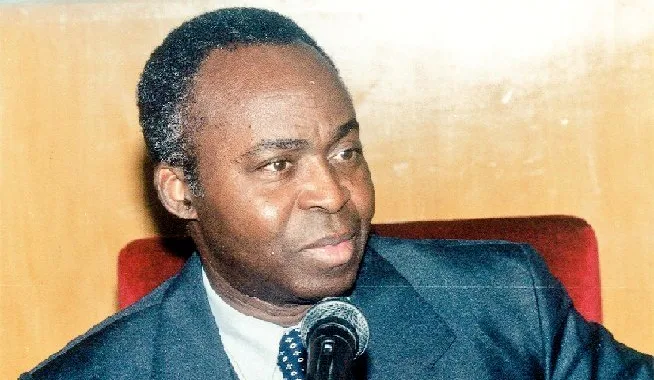 Dominique Sakombi Inongo, quinze ans déjà : héritage vivant, avenir commun
Dominique Sakombi Inongo, quinze ans déjà : héritage vivant, avenir commun 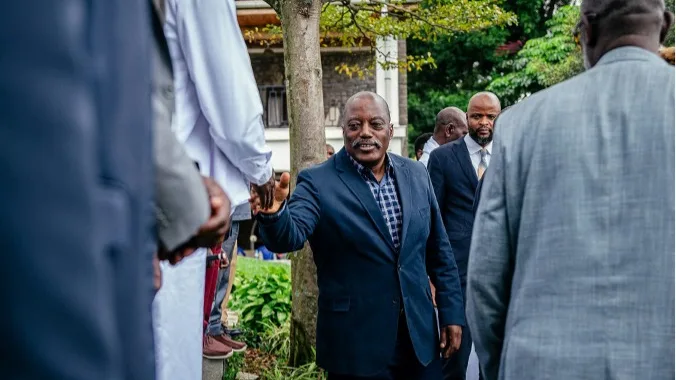 En RDC, Joseph Kabila met Félix Tshisekedi en garde : « Tôt ou tard, la supercherie sera évidente pour tous »
En RDC, Joseph Kabila met Félix Tshisekedi en garde : « Tôt ou tard, la supercherie sera évidente pour tous » 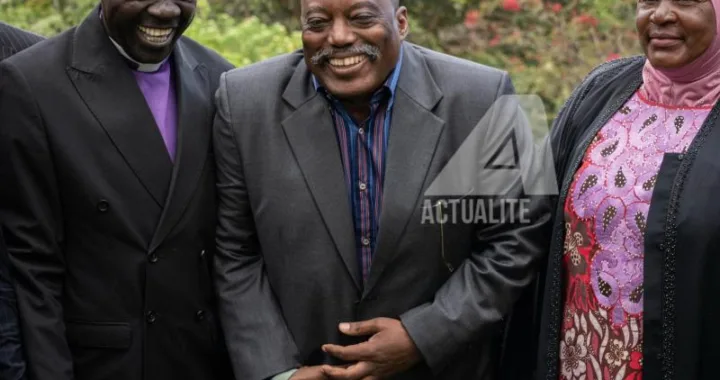 RDC : l’opposition se dresse contre la peine de mort requise contre Joseph Kabila
RDC : l’opposition se dresse contre la peine de mort requise contre Joseph Kabila 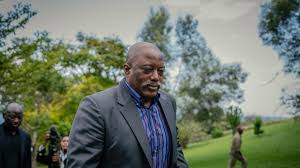 Supporters of ex-DRC President Kabila denounce proposed death penalty as ‘sham’
Supporters of ex-DRC President Kabila denounce proposed death penalty as ‘sham’